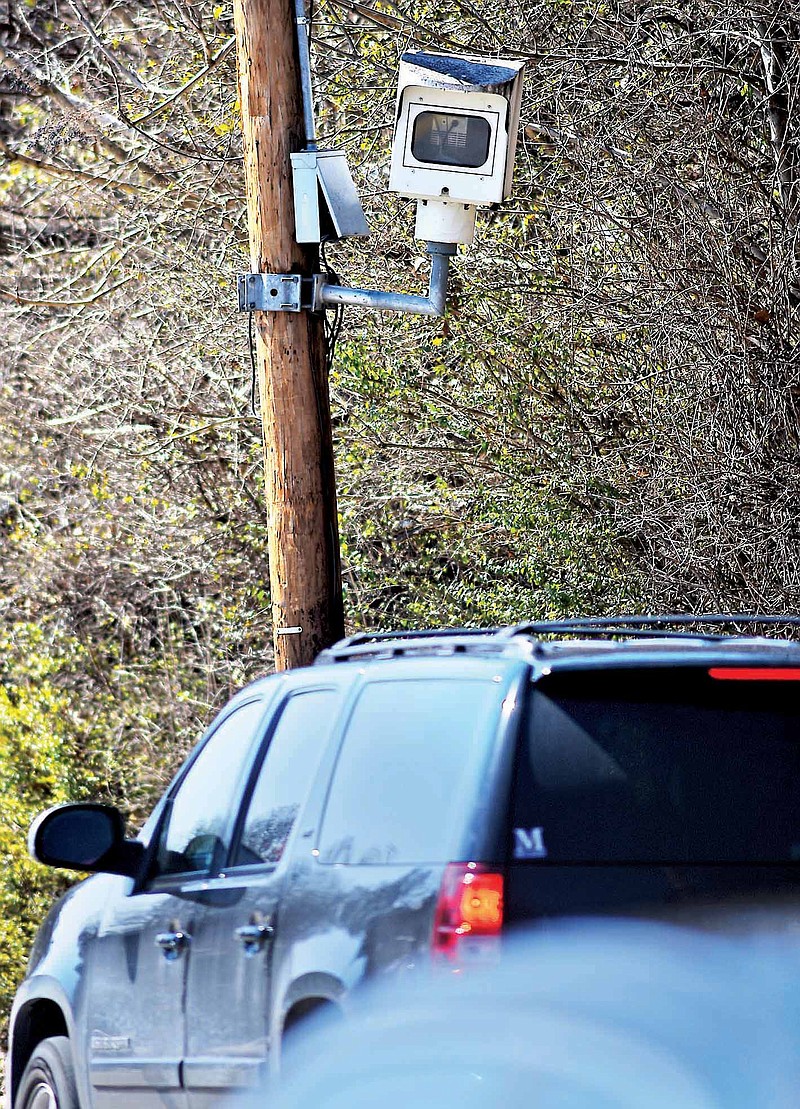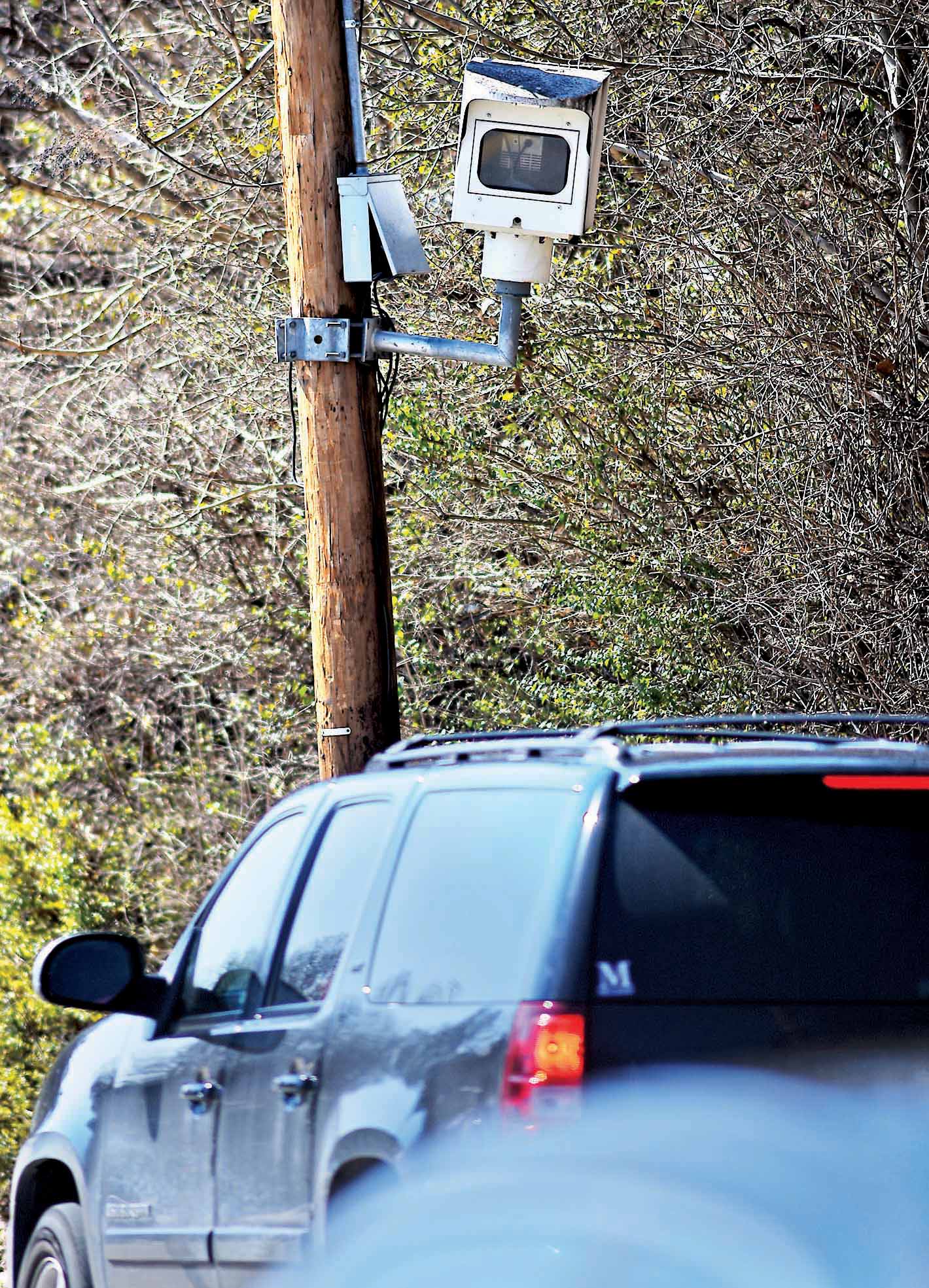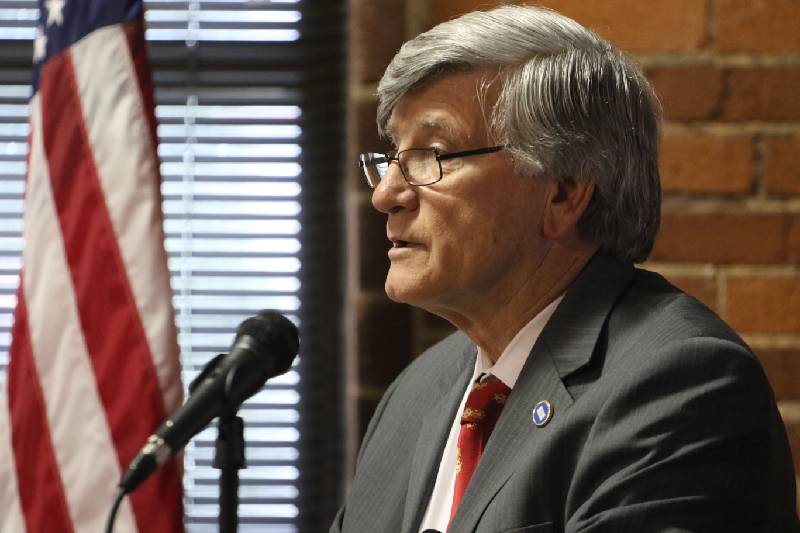State Sen. Todd Gardenhire says traffic cameras are Big Brother, with an eye on your life and a hand in your pocket, and he wants no more of them.
In "Tennessee Freedom from Traffic Cameras Act," the Chattanooga Republican calls traffic cameras "a form of mass surveillance over ordinary and innocent Tennessee motorists." He says they deny people's constitutional right to face and cross-examine their accuser in court, "because the accuser is a machine."
And the money generated by the tickets often goes to out-of-state companies, he adds.
"Millions of dollars every year leave our economy at the cost of our constitutional rights and the aforementioned constitutional rights do not have a price-tag," according to the proposed law.
Gardenhire said Friday he and House sponsor Andy Holt, R-Dresden, had been discussing traffic camera legislation for some time and this session just seemed like the right time.
"It's just a huge, huge source of complaints from people all over the state," Gardenhire said. "It's looked at as a revenue producer for cities and counties more than a safety matter."
His biggest issue with traffic camera tickets is there is no effective way to fight them in court.
"Is there an excuse for speeding? No. But there are circumstances, and [with cameras] there's not even anybody to go talk to about it," Gardenhire said.
If passed, the law would make Chattanooga's more than a dozen traffic cameras illegal. City spokeswoman Lacie Stone said that would be unfortunate.
"Because of these cameras, we have successfully reduced accidents, in some areas dramatically, and made these areas safer for citizens," Stone said.
According to city records, traffic accidents on Hixson Pike have dropped significantly since 2007, when traffic cameras were installed.
In 2006, there were 18 accidents on Hixson Pike, three of which included injuries. The next year, that number dropped to 10. From 2008 to 2010, there were 13 accidents total, records show.
Last year, five accidents were reported, Stone said.
The city's share of camera-generated tickets goes toward funding its driver education program. Residents ages 15 to 22 can pay $50 for a five-week course. If the driver passes, the city pays the remaining $300 charge to the private company that holds the contract. If the driver fails, he or she pays the remaining $300.
Stone said the city does not look to the cameras for revenue.
"We should not, do not, and will not use traffic cameras as a way to increase funds for the city. Traffic cameras are to ensure the safety of our citizens and the health of our neighborhoods," she said.
Gardenhire said he shared his concerns with the city at a legislative meeting in December. And he's open to hearing all sides.
"We are going to have a hearing and we are going to give everybody the chance to come in and plead their case," Gardenhire said.
Nationwide, 13 states have passed laws prohibiting the use of speed enforcement cameras, according to the Governors Highway Safety Association. Ten states prohibit the use of red-light enforcement cameras.
Tennessee law allows both.
Locally, the issue has played out differently at the city and county levels.
In February 2014, Hamilton County commissioners took a lashing from residents after voting 5-4 to allow Sheriff Jim Hammond to buy two camera-equipped speed detection devices.
In that case, officers would have operated the cameras, so they wouldn't be banned under the proposed bill. But officers still wouldn't have had to pull people over; instead, drivers would have been sent tickets in the mail.
Residents still hated the idea.
Within 24 hours, three of the commissioners who voted for the expense had changed their minds.
Commissioner Marty Haynes, one of the commissioners who flipped his vote, said the public's opinion was clear.
"The public has made it very clear they are not in favor. My vote will change," Haynes said in February. "The firestorm over this has been pretty, well, pretty brutal."
Commissioner Chester Bankston faced ire, too.
"I'll make the motion [to rescind the vote], or second it or whatever, next week. I already told someone today, I don't have any 'butt' left," Bankston said last year.
Before that, in 2012, residents in Red Bank rose up against three cameras at Morrison Springs Road, Signal Mountain Road and Ashland Terrace. Residents and merchants complained the cameras stifled business growth in the city.
Those cameras came down in January 2013, after being up for nearly six years and generating more than 72,000 tickets.
Contact staff writer Louie Brogdon at lbrog don@timesfreepress.com, @glbrogdoniv on Twitter or at 423-757-6481.


